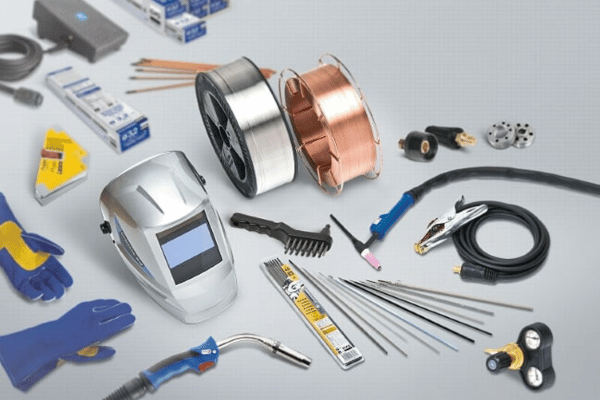
According to a report by Expert Market Research (EMR), the global inverter duty motors market is projected to grow at a CAGR of 6% between 2024 and 2032. This growth is driven by the increasing demand for energy-efficient solutions, the rising trend of industrial automation, and the growing applications of inverter duty motors across various sectors, including manufacturing, mining, and water treatment. Inverter duty motors are designed to operate efficiently under varying loads and speeds, making them ideal for a wide range of industrial applications.
The increasing focus on sustainability and energy conservation is a significant factor contributing to the market's expansion. Industries are increasingly adopting inverter duty motors due to their ability to provide precise control of motor speed and torque, thereby reducing energy consumption and operating costs. Additionally, the proliferation of renewable energy sources and the need for efficient energy management systems have further bolstered the demand for inverter duty motors in various applications.
The rising industrial activities in emerging economies, coupled with technological advancements, are expected to create new growth opportunities in the inverter duty motors market. The ongoing transition towards Industry 4.0 and the integration of smart technologies into manufacturing processes are likely to drive the demand for advanced inverter duty motors that can communicate with other machines and systems.
Get a Free Sample Report with Table of Contents
Market Segmentation
The inverter duty motors market can be segmented based on type, application, end-user, and region.
Market Breakup by Type
AC Inverter Duty Motors
DC Inverter Duty Motors
Permanent Magnet Inverter Duty Motors
Market Breakup by Application
Pumps
Fans
Compressors
Conveyors
Mixers
Others
Market Breakup by End-User
Manufacturing
Oil and Gas
Water and Wastewater Treatment
Mining and Metals
Others
Market Breakup by Region
North America
Europe
Asia Pacific
Latin America
Middle East and Africa
Competitive Landscape
The EMR report delves into the market shares, technological advancements, capacities, investments, and mergers and acquisitions of leading companies operating in the global inverter duty motors market. Some of the prominent players highlighted in the report include:
Siemens AG
General Electric Company
Rockwell Automation, Inc.
Schneider Electric SE
Mitsubishi Electric Corporation
Yaskawa Electric Corporation
Baldor Electric Company
WEG S.A.
Emerson Electric Co.
Nidec Corporation
Others
Drivers of Market Growth
Energy Efficiency and Sustainability
As industries face increasing energy costs and regulatory pressures regarding emissions, inverter duty motors offer a solution by providing high efficiency and reduced energy consumption. These motors help industries transition towards more sustainable practices.Industrial Automation
The global shift towards automation in manufacturing processes is driving the demand for inverter duty motors. These motors enable precise control and monitoring, essential for automated systems, improving productivity and reducing operational downtime.Technological Advancements
Continuous advancements in motor technology, including the development of smart inverter duty motors with integrated sensors and communication capabilities, are enhancing their functionality and appeal to various industries.Growth in Renewable Energy Sector
The increasing investment in renewable energy sources, such as wind and solar power, is creating demand for inverter duty motors in applications like pump control and energy generation systems.Rising Demand from Emerging Economies
The rapid industrialization in emerging economies, particularly in Asia Pacific and Latin America, is contributing to the growth of the inverter duty motors market. As these countries expand their industrial base, the demand for efficient and reliable motor solutions is expected to rise.
Challenges Facing the Market
Despite the promising growth trajectory, the inverter duty motors market faces several challenges:
High Initial Costs
The upfront investment for inverter duty motors can be significantly higher than traditional motors, which may deter some companies, especially small and medium-sized enterprises, from making the switch.Technical Complexity
The installation and maintenance of inverter duty motors require skilled technicians and specialized knowledge, which may not be readily available in all regions.Competition from Alternative Technologies
The market is also witnessing competition from alternative technologies, such as traditional motors and newer innovations, which may offer lower initial costs or simplified operations.
Explore Trending Reports:
Robotaxi Market: https://www.expertmarketresearch.com/reports/robotaxi-market
Smart Luggage Market: https://www.expertmarketresearch.com/reports/smart-luggage-market
Aluminium Market: https://www.expertmarketresearch.com/reports/aluminium-market
Future Trends
Increased Adoption of IoT and Smart Technologies
The integration of Internet of Things (IoT) technologies into industrial systems will enable real-time monitoring and predictive maintenance of inverter duty motors, further enhancing their efficiency and reducing operational costs.Focus on Customization and Modular Solutions
As industries seek tailored solutions to meet specific operational needs, manufacturers are likely to focus on developing customized inverter duty motors that can be easily integrated into existing systems.Expansion of Applications
New applications for inverter duty motors are emerging across various sectors, including HVAC systems, electric vehicles, and robotics, which will drive demand and market growth.Sustainability Initiatives
With a growing emphasis on corporate social responsibility, companies are increasingly adopting sustainable practices. Inverter duty motors will play a crucial role in reducing carbon footprints and achieving sustainability goals.
The global inverter duty motors market is set for robust growth in the coming years, driven by energy efficiency demands, industrial automation trends, and technological advancements. Key players are likely to focus on innovation and strategic collaborations to enhance their market positions and cater to evolving consumer needs. While challenges exist, the overall outlook remains positive, with numerous opportunities for growth and expansion in various sectors. The market's shift towards sustainability and the increasing integration of smart technologies will further shape the future of inverter duty motors, ensuring their relevance in an ever-evolving industrial landscape.




















Write a comment ...